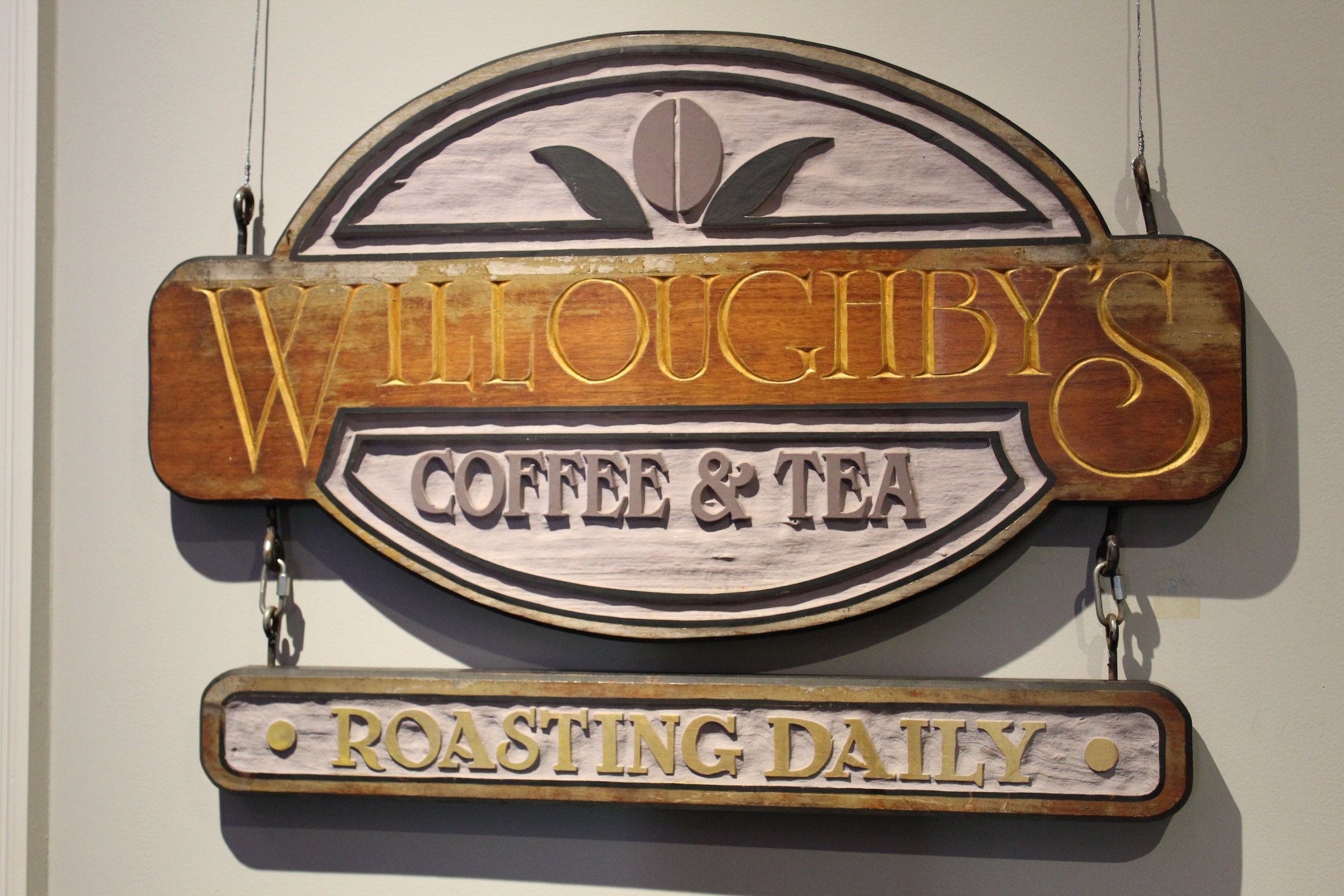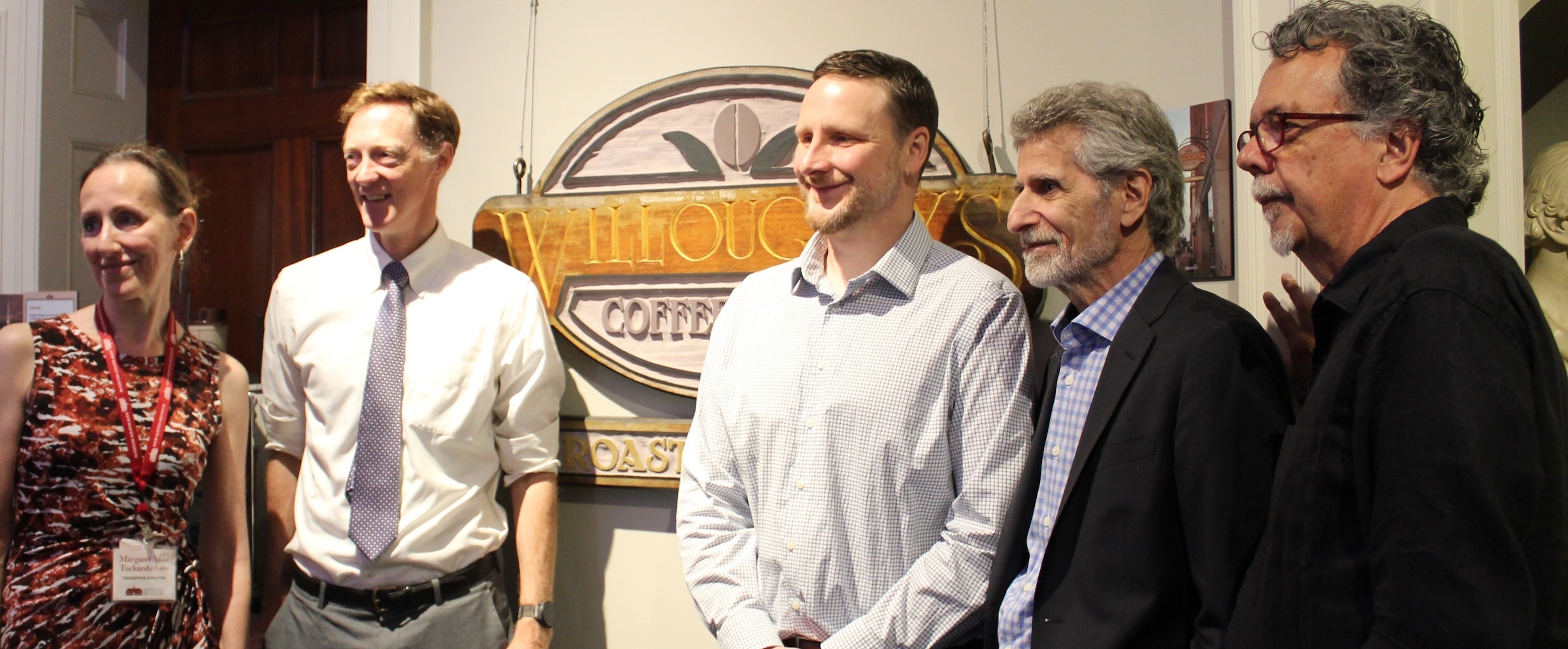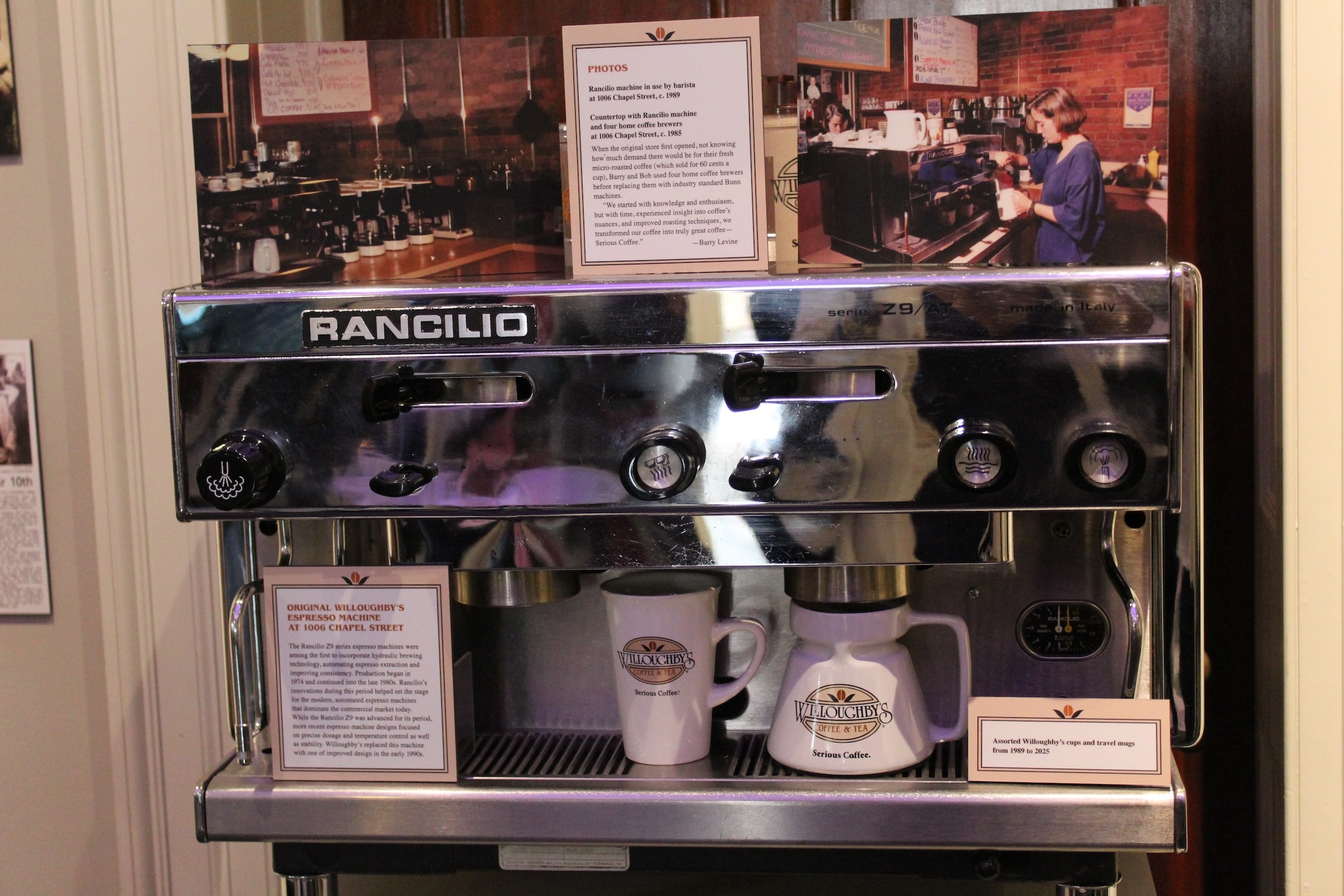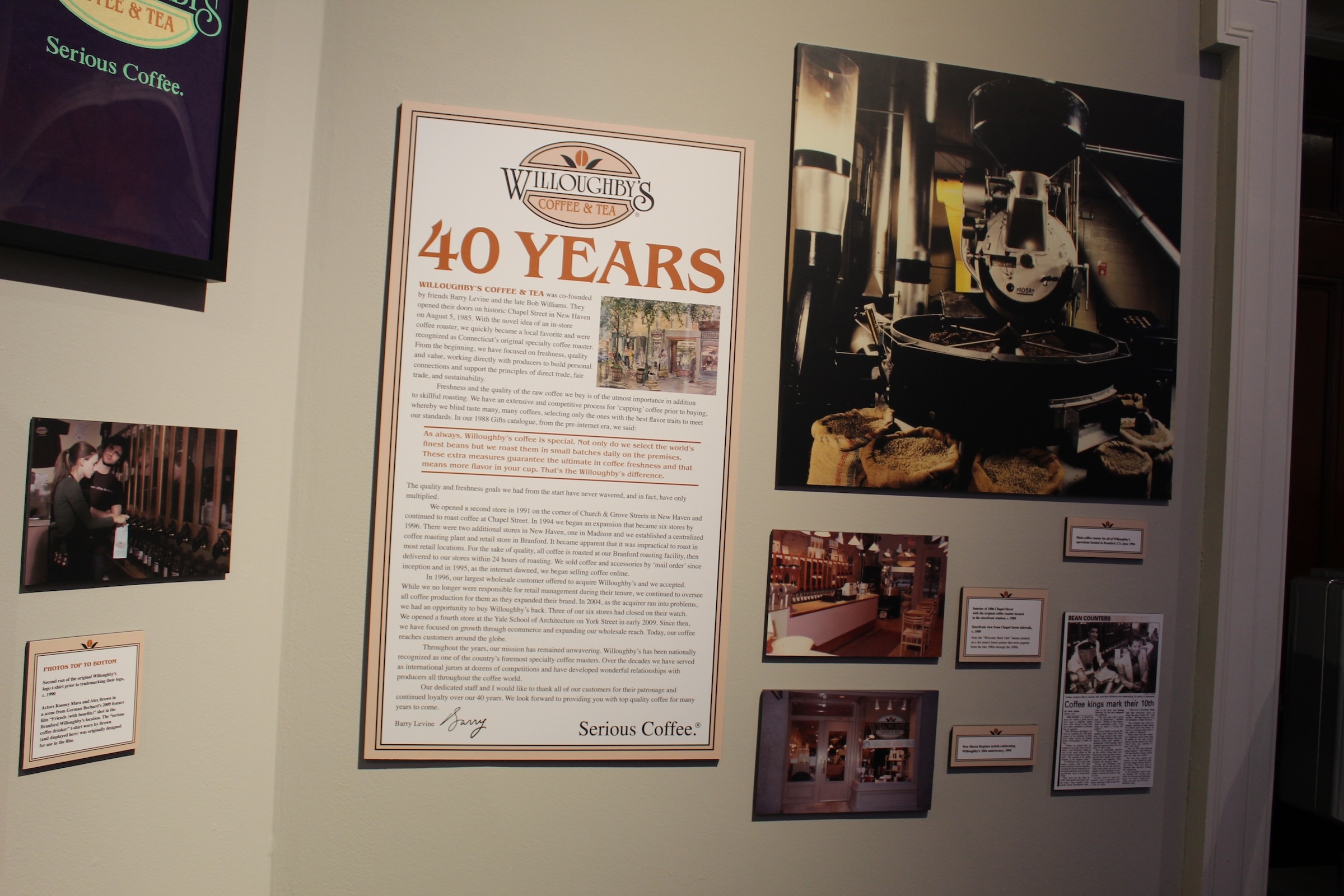
MONA MAHADEVAN photo
The original Willoughby's sign, first hung in its original Chapel Street location.
Willoughby’s co-founder Barry Levine grabbed a cup of Willoughby’s coffee Tuesday morning — not at one of his outlets, but in the atrium of the New Haven Museum, where he celebrated the opening of an exhibit dedicated to the local cafe’s four decades of serving specialty roasts.
Levine was joined by almost 40 people in the museum at 114 Whitney Ave. to drink coffee, sample pastries, and view a new display all about Willoughby’s Coffee & Tea, unveiled on its 40th anniversary.
Founded by Levine and the late Bob Williams, Willoughby’s is known as a pioneer of specialty roasted coffee in Connecticut. It currently has four locations in downtown New Haven, central Madison, and Branford.
Behind Levine’s cup of Joe is a long process of testing. He told the Independent that the store does blind “coffee cupping”: a standardized method that allows tasters to evaluate the aroma, flavor, acidity, and body of coffee without knowing the origins of the beans.
The process begins by roasting “green beans” — the raw seeds of coffee cherries — in the store’s specialty machines, and then grinding those beans into identical cups. Testers smell the grounds to get an initial sense of the aroma before pouring nearly-boiling water on top. After a few minutes, a crust forms, which testers then break with a spoon to get a fuller sense of the beans’ aromas. Lastly, they skim the crust from each cup and sample the coffee, paying special attention to flavor qualities reflective the coffee’s “terroir”: that is, the environmental conditions of where the beans were grown.
Levine said he believes blind coffee cupping is “what sets [Willoughby’s] apart.”
“Quality coffee — yes, of course, it has caffeine — but you’re choosing your coffee based on the flavors and qualities,” he explained.
According to Wyatt Baum, the roasting plant manager, the staff sources dozens and dozens of beans from distributors across the world, and “in some cases, directly from the the farms.”
During remarks honoring the store, Elicker described Willoughby’s as on the forefront of fair trade and sustainability, outdoor café seating, and specialty roasting. He issued a proclamation on behalf of the city honoring the store for those innovations.
Being pioneers came with a special set of challenges, said Levine. In February 1994, there was a fire in the store’s first-ever location at 1006 Chapel St. The roasting machine, which they have since retired, stored the “chaffs,” or outermost skins, of the beans inside an internal repository. A small spark lit the chaffs, and then the entire store, on fire.
Levine showed the Independent pictures of his team salvaging the machine and transporting it on a sled to a pick-up truck during a massive snowstorm. They drove it to the Branford location, which was still in development at the time.
Thanks to help from a colleague, just nine days later, the original Chapel Street location was back to serving coffee. A few months later, the Branford location was up and running, and to this day roasts beans every weekday for all Willoughby’s locations.

New Haven Museum Executive Director Margaret Tockarshewsky, Mayor Justin Elicker, New Haven Museum Director of Photo Archives Jason Bischoff-Wurstle, Willoughby's co-founder Barry Levine, and Gorman Bechard pose in front of the new exhibit.

The original espresso machine from Chapel Street.

A portion of the Willoughby's exhibit, now on display at the New Haven Museum.